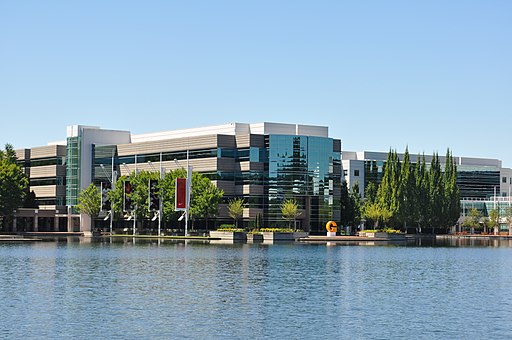No Sweat

Nike Headquarters near Beaverton, Oregon, in July 2010. Lake Nike is in the foreground. Photo by Brandon Carson.
The targets of Nike’s advertising, the buyers of its shoes and other athletic gear, are probably mostly unaware of Nike’s history of exploitative labor practices. That has to be what Nike is counting on and why they are willing to put forward a controversial figure to promote their products. Nike knows its target market is under 30, and to many of them Mr. Kaepernick is a hero, while only a minority of them may know or care about Nike’s history of bad labor relations. Nike is still in business, after all, and doing better than ever. For Nike’s young customers, there is likely no dissonance bubbling up from this advertising campaign.
It is mostly older folks who are upset with Mr. Kaepernick’s kneeling protests, and Nike doesn’t need their business to stay afloat. The campaign is a cynical, amoral ploy by Nike, which is no surprise, but it’s puzzling to consider Mr. Kaepernick’s motivations, if they are indeed any deeper than face value, such as how Nike depicts him on their poster, accompanied by a slogan with echoes of Spike Lee’s Do the Right Thing, or as Nike might appropriate it, Just Do the Right Thing.
— Ed. 
